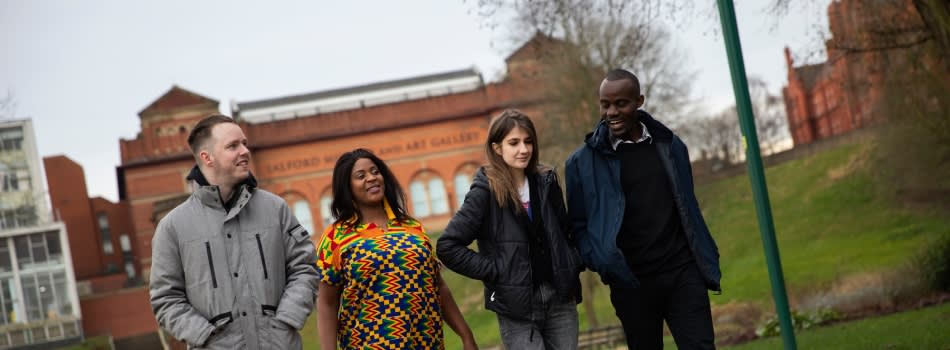About the Project
University of Salford and Shandong BetR Medical Technology Co. Ltd.
The studentship is fully funded and includes:
• A fee waiver
• A stipend of £15,824 p.a. for three and a half years
• All bench fees and consumable costs
• Funds specifically allocated for conference travel
Final date for applications: 30th June 2019
Interviews in July 2019
Project Description
After a stroke many people cannot use their affected arm because of partial paralysis and this has considerable impact on their quality of life. Intensive physiotherapy can help people to regain use of their arm, but a major problem is the limited availability of physiotherapists, who act as clinically qualified personal trainers. Therefore, home-based rehabilitation systems that do not require the presence of a physiotherapist are needed to give the best chance of recovery through relearning and brain plasticity.
Functional Electrical Stimulation (FES) of muscles is a high-tech but potentially low-cost solution, which directly activates paralysed muscles through electrical stimulation via skin-surface electrodes. In contrast to traditional physiotherapy, FES provides a means of directly tapping into the nervous system, actively producing muscle contraction and movement, exciting many of the associated neural pathways. If this is synchronised with the patient’s efforts to carry out meaningful tasks, it provides sensory neural inputs associated with the intention to create functional movement, which is ideal for promoting relearning and brain plasticity.
However, current FES systems for hand-arm therapy rely on the presence of a specialist physiotherapist who understands how to adjust the stimulation applied to relevant muscles to help the patient undertake training exercises. This is more difficult than it sounds because the patient will have some ability to voluntarily contract their muscles and the FES must provide enough support but not too much, so that the patient is continually challenged whilst achieving the training exercises. So, automating this is a more difficult problem than simply controlling the movement of the patient's arm in the same way that a robot arm would be controlled.
The system we envisage would sense arm movement but, rather than using traditional trajectory following feedback control (e.g. robot control), it will need to estimate the level of voluntary effort achieved by the patient and adapt muscle stimulation to compensate for their improving performance or fatigue to keep the training exercises challenging but achievable. At present FES control parameters are adjusted manually, by trial and error, and it is unclear how this can be formalised so that it can be automated.
To solve this problem you will:
i. Use a heuristic rule-based system informed by knowledge elicitation from a group of FES specialists.
ii. Use machine-learning methods that can automatically learn from FES specialists.
iii. Apply the algorithms developed in i) and ii) in an iterative learning manner to track the patient's changing voluntary effort.
Working closely with our industrial partner, Shandong BetR Medical, and also our team of research physiotherapists, you will produce and test a prototype neuro-prosthesis based on your new learning algorithms. Therefore, you will have the opportunity to work for short periods at the company, which is based in Jinan City, China. Shandong BetR Medical is a small spin out company led by Dr Mingxu Sun who was a researcher in our team at Salford up until 2018.
Your PhD will build upon our previous work on FES, for example follow these links: https://www.frontiersin.org/articles/10.3389/fneur.2019.00227/full https://www.frontiersin.org/articles/10.3389/fnins.2018.00449/full
You will join a vibrant research group, which currently holds around £8 million in research funding from EPSRC, NIHR and charities, including hosting the UK’s Centre for Doctoral Training in Prosthetics and Orthotics. For more information, see https://www.salford.ac.uk/research/health-sciences/research-groups/human-movement-technologies
For the latest news on our group, see https://twitter.com/UoSRehabTech
Candidates
This PhD will suit candidates with a strong interest in Biomedical Engineering, including prototyping and testing (with patients) of solutions that include sensing, stimulation hardware, and embedded software. Candidates should have a first or upper second-class honours degree in an area relevant to the proposed research. This includes engineering, physics, mathematics or computer science. Candidates with other closely related first degrees should contact Prof Howard to discuss their eligibility.
For full details of student requirements and specification please visit: http://www.salford.ac.uk/ktp/industrial-case-studentships/vacancies
Informal enquiries may be made to Prof David Howard by email: [Email Address Removed]
A curriculum vitae and supporting statement, explaining your motivation and interests, should be sent to both [Email Address Removed] and [Email Address Removed]

 Continue with Facebook
Continue with Facebook


